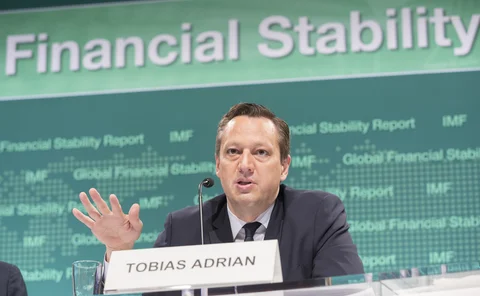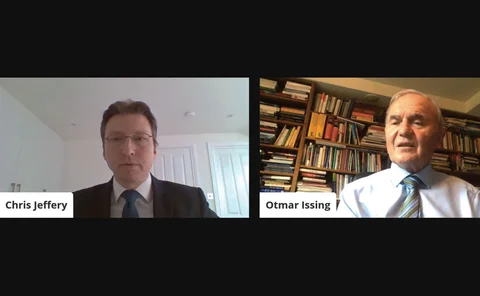Advanced economies
The ‘golden age’ of central banking has passed
Central banks face multi-faceted challenges and weakened autonomy amid highly polarised inflation expectations
Governance Benchmarks 2021 report – the frameworks that rule central banks
How are central banks governed? Benchmarking data offers insights on appointments, legal structures, powers, decision-making bodies, independence and more
A return of the inflation monster?
There are fears that a shift in intellectual approach towards running economies ‘hot’ could herald a return of the money-eating inflation era
Central bank mandates differ between advanced and emerging economies
Governance Benchmark 2021 data shows emerging economy central banks more likely to have financial stability mandate
Fintech & IT Benchmarks 2021 report – executive summary
Shedding light on fintech initiatives, staffing, salaries, cyber security and more
BIS launches database on Covid-19 monetary policy actions
Data designed to help researchers study “massive” policy response to pandemic
IMF adjusts growth forecasts upward
Fund warns of uneven and unequal recovery, but is more optimistic than it was in October
Rising rates could endanger emerging market recovery, IMF warns
“Divergent recovery” likely to create financial stability challenges, report says
A latent rise in r* could upend monetary policy
A rising natural rate could create serious challenges for policy-makers, write Jorma Schäublin and Philip Turner
Cyber security and retaining top talent are biggest tech challenges
Keeping abreast of fintech developments also tests institutions
Corporate Services Benchmarks 2021 report – trends in financial reporting and administration
Insights on staffing and salaries, technological automation, data security, rule compliance, gender equality and green office spaces in accounting, audit, HR and administration
How valuable is a PhD economist?
Heads of research from Canada, Israel and North Macedonia weigh the benefits of advanced economics education – and the challenge of retaining top staff
Measuring the exceptional speed and scope of Covid-19 monetary policy
Policy actions during the first wave of the pandemic were extraordinary for their intensity, scope and speed. Other patterns also emerge on closer inspection
IMF warns of ‘exceptional uncertainty’ in vaccine-driven recovery
Fund upgrades global forecasts amid early success of vaccine rollout
Economics Benchmarks 2020 report – executive summary
Shedding light on economics governance, salaries, forecasting, research, publications and more
Size matters for central bank research publishing
Staff numbers have strongest association with central banks’ research output
Administrative data is most popular alternative data source
Central banks make use of a wide range of non-traditional data sources
ECB is caught in a ‘communications trap’ – Issing
Monetary policy architect says ‘close to’ 2% inflation target was never part of original plan; urges ECB to reject Fed-like average inflation targeting
Climate change on the agenda for most economics departments
Central banks explore a wide range of topics, with some differences between advanced economies and EMEs
Few central banks collaborate with private-sector researchers
Collaborations are common with academia, especially in advanced economies
Agent-based models remain rare among economics departments
Economics Benchmarks 2020 highlights the varied applications of different model types at central banks
Forecast errors marginally higher for growth than inflation
Data shows contrast between advanced and emerging economies
Income levels have little bearing on economics staffing
European central banks have on average more staff in statistics; non-European institutions have more research economists
Book notes: The great demographic reversal, by Charles Goodhart and Manoj Pradhan
An important book, predicting that powerful demographic forces will upend conventional thinking on macroeconomics and policy














